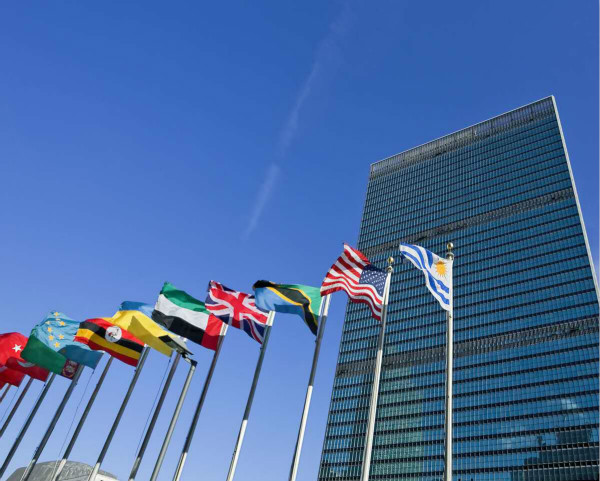Multilateralism only way out of crisis

UN headquarters in New York City. [Photo/Agencies]
The COVID-19 pandemic has shaken the world, but it has not broken us. We are witnessing devastations on many fronts. Nearly 1 million people have died worldwide, and the death toll continues to rise.
We must confront the onslaught of the pandemic with fortitude, resolve and unity, not with fear, division and despondence. The history of humanity is the history of triumph against all odds. This time will be no different.
The global economy is in crisis, with the world output projected to shrink by nearly $5 trillion this year. Millions of jobs have already been lost, many of which will never come back. Yet we are seeing slivers of hope. The economies of the United States, China and Germany are showing signs of resilience and recovery. Consumer confidence is rising, and retail spending is on the rebound. Defying market expectations, the Chinese economy grew by 3.2 percent in the second quarter of this year.
However, the outlook for the rest of the world is less promising. Poverty is rising, not only in the developing world but also in the most advanced economies. This will inevitably lead to higher levels of inequality, with serious consequences for social cohesion, peace and stability.
The glimmers of hope notwithstanding, we must guard against complacency. Let us not focus too narrowly on the growth numbers, or the shape of the recovery this year. Economic growth this year matters, but what matters more is how this will affect growth during the next five or 10 years.
The economic response and the choices we are making now will shape the path of the world economy for years to come. There is little room for mistakes. We must resist the temptation to view the recovery as a zero-sum game among countries, with a few winning the race while others fall behind. We are all in this together, and we must recover together.
The United Nations is commemorating its 75th anniversary. As the community of nations, the UN has helped deliver unprecedented prosperity over the past decades. But our cherished goal of an inclusive, equitable and sustainable world is still a long way away. We are off track to achieve the Sustainable Development Goals. Thus, our vulnerability to the pandemic must serve as a wake-up call for a more united world. We must take this opportunity to recover better, leaving no country and community behind.
Let me highlight four objectives that we must prioritize now.
First, as we strive to save lives, we must also save livelihoods. When confronted with difficult trade-offs, we must keep in mind that loss of jobs will exacerbate hunger, poverty and inequality. We must deploy resources carefully-not only to bring back jobs that have been lost-but also to fill the job deficits that persisted before the pandemic.
Second, boosting investments-building and rebuilding physical infrastructure-must remain a critical priority for creating jobs and greening our economies. This is our path to a more interconnected, interdependent and climate resilient future.
Third, we must prioritize improving our human capital. There is a pressing need to augment investments in health, education, skills and technical know-how to ensure the livelihoods of future generations. This will also require us to rethink, pace and sequence technological progress to prevent a jobless recovery.
Finally, it is the time for us to put our commitment to universal social protection into action. The pandemic has shown us that we are as strong as our weakest link. For far too long, social protection has been a footnote in mainstream economic policies that prioritized efficiency and profit, over the well-being of people. The current crises should allow us to change course in the direction of universal social protection.
In order to realize these objectives, we must deploy all the tools at our disposal. We must ensure that trade-a critical tool of development and well-being-does not become collateral damage of the pandemic. Indeed, international trade is not just the glue that binds nations together. It is also the wellspring of jobs, investment, technology transfers and innovation. The gains from trade enabled the governments in Europe, North America and East Asia to extend safety nets to those who needed a helping hand, and thus created more inclusive and prosperous societies.
The developing countries must have their opportunity too. We must not retrench from trade or follow our worst instincts for protectionism and isolationism.
In our darkest hours, we must strengthen multilateralism and global dialogues to rekindle the spirit of mutual trust, unity, partnership and interdependence.
We must collectively safeguard and promote international trade to boost investment, protect livelihoods, promote well-being and recover better.
This is the only way forward.
The author is UN under-secretary-general for economic and social affairs. This is an excerpt from his opening speech at the Sixth Global Think Tank Summit of China Center for International Economic Exchanges on Wednesday.
The views don't necessarily reflect those of Qiushi Journal.
























